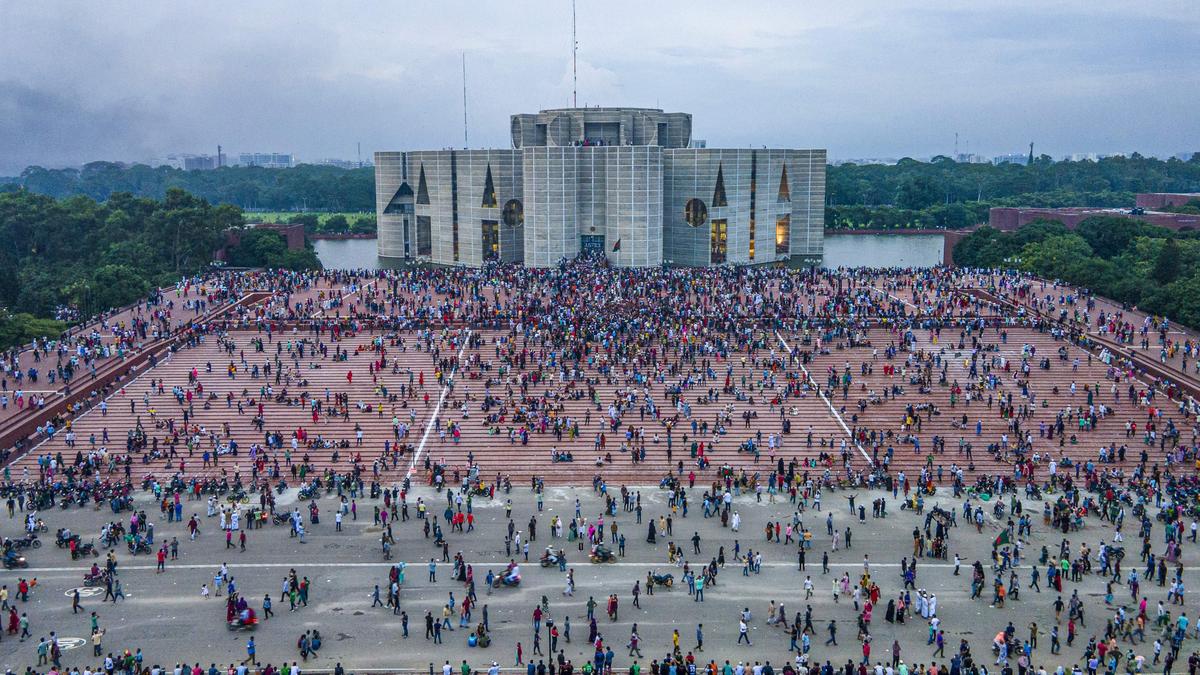The United States on August 6 recommended its citizens not to travel to Bangladesh, witnessing civil unrest, crime, and terrorism following the resignation and fleeing of former prime minister Sheikh Hasina.
Elevating its travel advisory to the highest ‘Level 4: Do Not Travel’ category, the U.S. State Department has also recommended the departure of non-emergency U.S. government employees and family members.
Also Read: Bangladesh protests LIVE Updates
Over 100 people have been killed in the violence across Bangladesh as chaos reigned supreme hours after Ms. Hasina resigned as prime minister and fled the country on Monday, amid signs of a return to normalcy.
“On August 5, 2024, the Department ordered the departure of non-emergency US government employees and family members. Travellers should not travel to Bangladesh due to ongoing civil unrest in Dhaka,” the State Department said in its advisory.
“Violent clashes have occurred in the city of Dhaka, its neighbouring areas, and throughout Bangladesh, and the Bangladesh Army is deployed nationwide. Dhaka’s Hazrat Shahjalal International Airport temporarily paused operations on August 5. Travellers should check with their airlines to confirm the status for future flights,” the travel advisory said.
Also Read: India has assured help to Hasina: Jaishankar tells at all-party meet
Travellers should be aware of petty crimes such as pickpocketing in crowded areas, the advisory said, adding that crimes such as muggings, burglaries, assaults, and illegal drug trafficking constitute the majority of criminal activity in Bangladesh’s major cities, but there are no indications foreigners are being targeted because of their nationality. These crimes tend to be situational, based on time and location, it said.
According to the travel advisory, terrorist attacks can happen with little or no warning, with terrorists targeting public areas such as tourist locations, transportation hubs, markets/shopping malls, restaurants, places of worship, school campuses, and government facilities.
“Because of security concerns, U.S. Embassy personnel in Bangladesh are subject to some movement and travel restrictions. The U.S. government may have limited ability to provide emergency services to U.S. citizens in Bangladesh due to these travel restrictions, a lack of infrastructure, and limited host government emergency response resources,” it added.
The situation in Dhaka was largely calm on Tuesday morning after a day of unrest and a night of tension. Buses and other public transport were on the streets and traders were opening shops. Government vehicles were heading to offices. Many battery-run rickshaws plied the roads, BDNews24.com newsportal said.
Also Read : From job quota to Sheikh Hasina’s resignation: Timeline of the Bangladesh student protests
As the news of Ms. Hasina’s departure spread on Monday, hundreds of people broke into her residence, vandalising and looting the interiors, providing dramatic expression to the anti-government protests.
Hasina’s residence Sudha Sadan and other establishments were attacked, vandalised and set on fire in the capital. The residences and business establishments of ministers, party MPs and leaders of Hasina’s Awami League government were also attacked in Dhaka and outside Dhaka.
According to local media reports, 119 people have been killed in the violence and attacks on Hindu temples and widespread looting in the capital and various other places.











